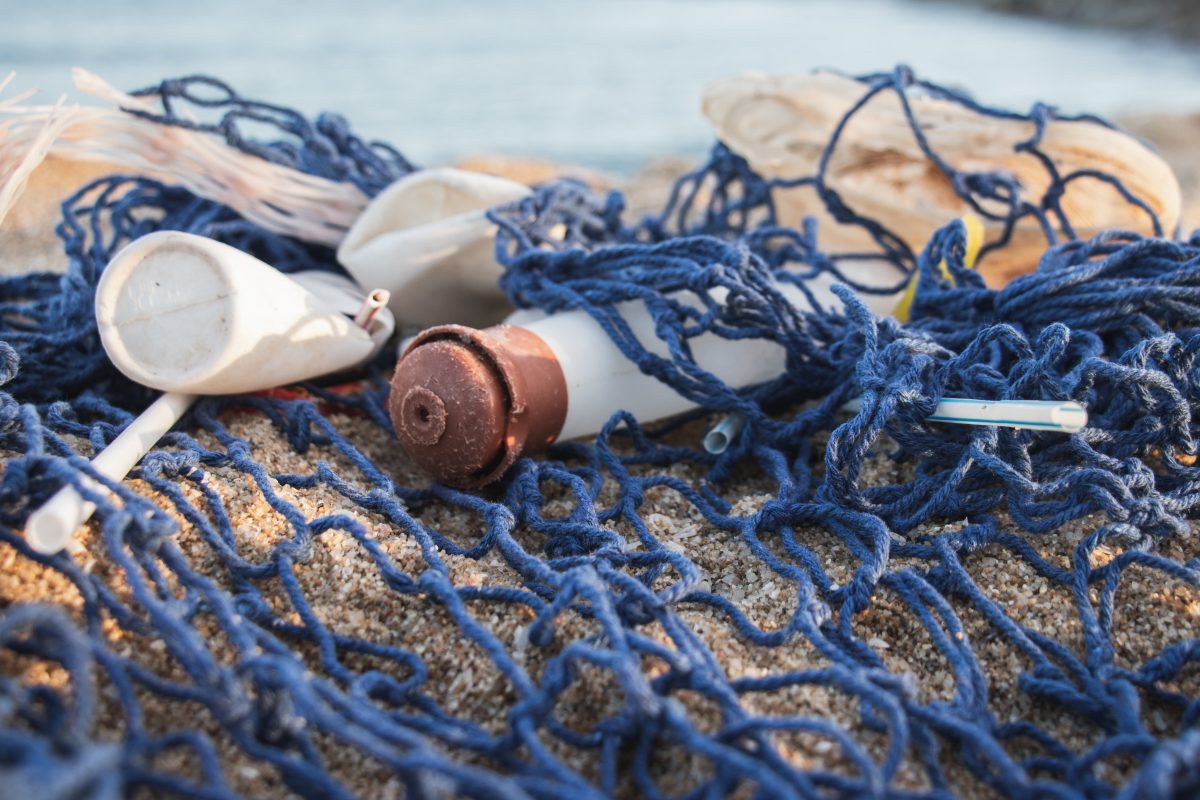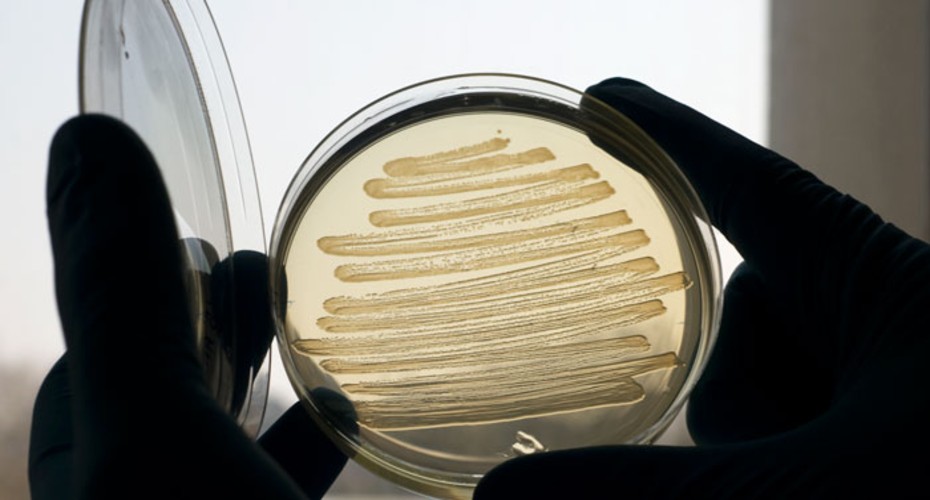All posts using category:
Environmental Intelligence

10 October 2024
4 minutes to readSlow mining could be a solution to overconsumption in an increasingly fast-paced world
Fast fashion and fast technology have a significant impact on the world’s environment. But, by introducing slow food and small-scale mining we can cultivate a positive impact.
Read on

7 August 2024
2 minutes to readNew education programme to inform schools about our oceans
Despite covering most of our planet’s surface and playing a pivotal role in the climate system, the ocean hardly features on the UK schools’ curricula and is rarely taught in primary schools.
Read on

23 June 2022
2 minutes to readElectric sensing in fish & bees’ nightvision
Psychology PhD student Katy Chapman is taking a break from lab work to investigate pollinators in the South Devon AONB, as part of her work looking at pollinators.
Read on

24 November 2021
3 minutes to readMarine-i project is helping to create Cornwall’s marine industries of the future
Marine-i is a pioneering business support programme between the University of Exeter and five Project Partners that has been designed to foster innovation in the marine technology sector in Cornwall. “Our goal is to help put Cornwall at the forefront of the marine tech industries of the future,” says Professor Lars Johanning,…
Read on

14 June 2021
3 minutes to readMarine-i: Space Data Project Enters New Discovery Phase
A new project aims to bring the precision of space data to renewable energy development and, by reducing various risks, costs and carbon emissions, help the UK quadruple its offshore wind capacity by 2030. The innovative space data project is now underway, bringing together collaboration and expertise from Marine-i, 4 Earth Intelligence…
Read on

22 March 2021
3 minutes to readThe changing social, economic and cultural aspects of water use within the UK
On this year’s World Water Day, Centre for Water Systems postgraduate researcher Elizabeth Lawson looks at the social, cultural and economic value of water during the Covid-19 pandemic.
Read on

26 November 2020
3 minutes to readPartnership in Focus: Met Office
The University of Exeter works closely with the Met Office to tackle key challenges in weather and climate prediction as part of an in-depth Met Office Academic Partnership.
Read on

13 November 2020
2 minutes to readBreaking Boundaries: Using lasers to detect volcanic ash in the sky
Research at the University of Exeter helped avoid closure of UK airspace on two separate occasions in 2017 and 2019.
Read on

26 August 2020
4 minutes to readPolicy Relevant Climate Research
University of Exeter works closely with the Met Office to tackle key challenges in weather and climate prediction as part of an in-depth Met Office Academic Partnership.
Read on

17 August 2020
4 minutes to readQuantifying drought risk through rainfall modelling and simulation
Dr Oliver Stoner and Dr Theo Economou have developed an advanced yet highly interpretable statistical data model for capturing the behaviour of high resolution rainfall time series.
Read on

3 August 2020
5 minutes to readJust how sensitive is the climate to increased carbon dioxide?
Just how sensitive is the climate to increased carbon dioxide? Scientists are narrowing in on the answer. (Repost from The Conversation)
Read on

28 July 2020
3 minutes to readToo hot to handle? Studying the impact of climate change in the hottest sea in the world!
For this year’s #WorldNatureConservationDay, PhD candidate Hind Mohsen Al Ameri talks about why our warming climate could be driving marine turtles into extinction and why the conservation of nature is vital to life on Earth.
Read on

24 July 2020
6 minutes to readData Science for Climate Resilience in East Africa
TIST is a network of farmers who have to date planted over 19 million trees. The University of Exeter is working with TIST to quantify and understand TIST’s impacts at landscape scales and on multiple sustainable development goals.
Read on

20 July 2020
4 minutes to readHousehold air pollution and the forgotten 3 billion
Since 2017, researchers at the University of Exeter have worked with the WHO to design a completely new bespoke statistical model for estimating worldwide use of specific fuels for cooking.
Read on

15 July 2020
2 minutes to readUsing data and AI to solve global environmental challenges
On Wednesday (July 15th), the University of Exeter and the Met Office will enter a partnership to create a Joint Centre for Excellence in Environmental Intelligence.
Read on

8 July 2020
2 minutes to readImproving Met Office weather and climate prediction models
Research led by Professor John Thuburn and his research students has been integral to the development of a critical component of weather and climate prediction models at the Met Office.
Read on

25 May 2020
3 minutes to readUsing Data to Reduce Flooding and Harvest Rain
Via the Impact Lab, OTA Water has had access to a range of academic expertise for a pioneering project, using clever technology that harvests rain water but only releases it when the weather forecast says so.
Read on

10 December 2018
4 minutes to readWorking with the Met Office
Exeter is home to a number of globally renowned climate and weather scientists due to the combined intellectual expertise of the Met Office and the University of Exeter. The national weather service and the University have developed a strong partnership, collaborating on climate and weather science since 2003, when the Met Office…
Read on

13 April 2018
5 minutes to readThe effects of plastics on the environment
This Earth Day, we hear from leading academics, PhD researchers, and research students about the worldwide problem of plastic pollution.
Read on

22 November 2016
< 1 minute to readStatistical climatology
Professor David B. Stephenson is Director of the Exeter Climate Systems (XCS) research centre, and based within the Mathematics department in the College of Engineering, Mathematics and Physical Sciences. Since 1989, he has published more than 100 well-cited papers and a leading book on forecast verification. He has also developed successful partnerships…
Read on

15 November 2016
< 1 minute to readThe Interconnection between the environment and human health
Researchers at the European Centre for Environment and Human Health (ECEHH) are interested in the complex connections between the environment and human health Professor Lora Fleming is Director of the European Centre for Environment and Human Health, which is part of the University of Exeter Medical School. Based at the University of Exeter’s Truro campus in…
Read on

26 October 2016
< 1 minute to readA new approach to sustainable fisheries
This new approach to sustainable fishing ensures fish and other seafood are being sustainably caught with minimal damage to the marine environment. University of Exeter academics and students have been working with a new community interest company to develop an alternative approach to supplying sustainable fish. Sole of Discretion works with fishers who…
Read on

15 April 2016
< 1 minute to readUsing social media to track extreme weather events
Biosciences researchers are using data from social media to find out about the impact climate change has on people’s lives. Systems Ecology lecturer Dr Hywel Williams explains more in this video. Many people share posts and comments via social media on a daily basis, and this ever-growing bank of social information is now being…
Read on

14 April 2016
< 1 minute to readHow plastics are entering the food chain
Vast amounts of plastic waste are thrown into the oceans every year, what would it mean if this plastic could, and was entering the food chain? Professor Tamara Galloway in the College of Life and Environmental Sciences, whose research focuses on marine pollution, has been exploring this question through her Natural Environment Research Council (NERC) funded…
Read on

13 April 2016
< 1 minute to readMinimising air travel disruptions during volcanic eruptions
New measurement systems for volcanic ash developed by Professor Jim Haywood prevent air space closures in the event of a volcano.
Read on

12 April 2016
2 minutes to readResearcher in focus: Professor John Love
Stepping into the office of John Love, Associate Professor in Plant and Industrial Biotechnology at the University of Exeter, you can’t help but notice his aquarium. “It’s a bit of beauty, a bit of philosophy and a bit of practical teaching all in one,” he said. Adding: “When students come in they’re a…
Read on

26 February 2016
< 1 minute to readWhat is urban flood modelling?
Urban flood modelling is becoming more important as the population is increasingly urbanised. Flood modelling requires data on rainfall, land cover (whether the ground has roads, fields, buildings etc.), and soil type. Digital elevation data is needed to show where there are hills and where the water will flow. Remote sensing can…
Read on

4 November 2015
< 1 minute to readResearcher in focus: Professor Juliet Osborne
The presence of bees and other insects is vital to the pollination of crops and the maintenance of our ecosystem. Professor Juliet Osborne, Chair of Applied Ecology in the Environment and Sustainability Institute (ESI), looks at how insects and plants interact within the environment and their role in the provision of ecosystem services. The…
Read on

23 September 2015
< 1 minute to readWhat effects do microplastics have on the food chain?
When it comes to plastic waste in the ocean, how much is too much? Professor Tamara Galloway has been researching the effects of microplastics on marine wildlife and how ingestion of these objects by some of the smallest creatures in the ocean can have implications for the rest of the food chain. Professor Galloway,…
Read on

17 December 2014
3 minutes to readDiagnosing Malaria using Magneto-optic sensors
A rapid, reliable and low cost Malaria Diagnosis Sensor suitable for use in remote areas has been developed by University of Exeter researchers, which has the possibility to not only significantly reduce unnecessary treatments but potentially save hundreds of thousands of lives. Malaria is endemic in more than 100 countries but its…
Read on

15 December 2014
3 minutes to readClimate research influences policy and debate
Research conducted at the University of Exeter has altered the framework for climate change discussion, informed government debate and influenced policy.
Read on

10 December 2014
2 minutes to readMicrobial production of fourth-generation biofuels
Bacteria modified to produce fuel on demand have been produced by University of Exeter researchers in collaboration with energy and petrochemicals group Shell. Academics led by Professor John Love have found a way to get the organisms to produce fuel nearly identical to diesel. This will help meet future fuel demands without the need to…
Read on

25 June 2014
2 minutes to readThe impact of microplastics on marine life
Microplastic debris floating in the world’s oceans could be having a massive impact on marine life. Tiny bits of plastic rubbish are having an impact on lugworms, and other marine animals, which are an important source of food for other animals. Work by Stephanie Wright a postgraduate researcher from Biosciences found that…
Read on
